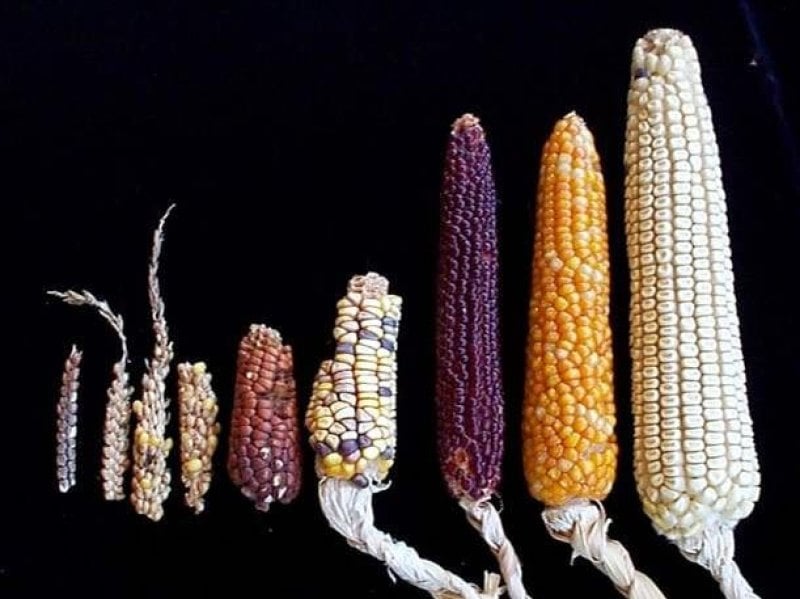[Kelly Swarts, a quantitative geneticist, and her] team sequenced the genomes of fifteen 1,900-year-old maize cobs found in [a Utah cave] and compared their sequences to those in a database of genomes and physical traits from some 2,600 modern maize lines. The researchers then used that information to extrapolate the physical characteristics of the Turkey Pen maize plants, including complex traits such as flowering time. The analysis revealed a crop that was shorter and more branched than modern varieties…The crop also flowered more quickly than lowland varieties — an important adaptation to life in the highlands, which have a shorter growing season than lower elevations.
…
A key finding from the study, says [Matthew Hufford, who studies evolutionary genomics in maize at Iowa State University in Ames], was the realization that the genetic variants needed to adapt to highland life were already circulating in maize populations thousands of years ago “The diversity needed for high altitudes was there, but getting it in the right combination took 2,000 years,” he says.
And that diversity could be crucial for breeders as they try to adapt modern maize to a rapidly changing climate, says Swarts.
The GLP aggregated and excerpted this article to reflect the diversity of news, opinion and analysis. Read full, original post: Ancient genomes show how maize adapted to life at high altitudes































